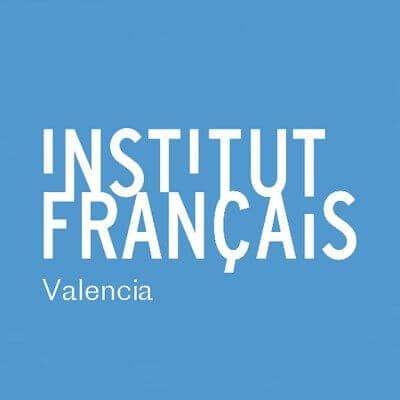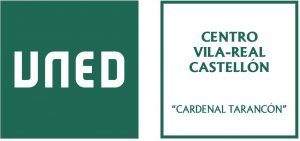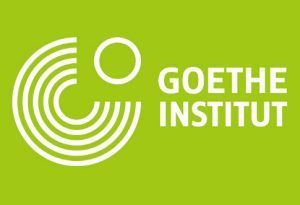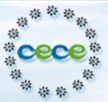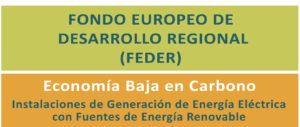PRIMARY SCHOOL
At LAUDE The British School of Vila-real, we also believe in ensuring that our children receive a well-rounded education, where individual talents are identified and nurtured. We ensure that all our children experience success and reach their full potential.
In order to achieve this, we offer a combination of the IPC and the British National curriculum. The BNC provides an outline of core knowledge, through which teachers develop exciting and stimulating lessons to promote our students’ acquisition of knowledge, understanding and skills as part of their learning process and wider school curriculum.
We believe that children should be curious about their learning. Through our engaging International Primary Curriculum, we ensure that our children can build a passion for learning that will help them to develop high aspirations and a lifetime of memories.
We strive to make learning creative, stimulating, inclusive and fun, with plenty of challenges, while setting ambitious goals for the future.
´The International Primary Curriculum is a comprehensive, thematic, creative curriculum with a clear learning process and specific learning goals for international mindedness. It incorporates personalised learning based on the IPC core goals: cooperation, communication, thoughtfulness, respect, resilience and morality´.
KEY STAGE 2
Key Stage 2 covers classes from Year 3 to Year 6. Our aim is to consolidate the basic skills that have been introduced in Infant Education.
By the time pupils reach Year 3 they have begun to develop mathematical skills and have learnt to read and write. We use a cross-curricular approach which ensures a curriculum that is broad and balanced, as well as interesting and varied.
At this stage, priority is given to the development of the student’s English comprehension skills.
Our aim is to increase the level of independence of our pupils so that by the end of the Primary stage they will be motivated, engaged learners who are responsible for their own learning.
We are committed to promoting good behaviour, mutual respect and consideration for others. We are advocates of recognition and positive reinforcement, as they encourage good behaviour, confidence and self-esteem.
PUPIL ASSESSMENT IN INFANT AND PRIMARY
We assess our pupils according to the guidelines set out by the British System in Infants and the International Primary Curriculum in Primary.
We also carry out formative assessments after each teaching unit to assess progress in writing and reading.
Annual assessments:
At the end of Years 2, 3, 4, 5 and 6 (from 1st to 5th Primary) tests are carried out to assess their yearly progress and to determine the level of each pupil.
Our Primary students can also take the Cambridge exams (Starters, Movers and Flyers).
From Year 2 (Primary 1) onwards, the SEN Department carries out the necessary diagnostic tests for pupils with suspected Learning Difficulties in order to guide the best educational intervention.
We carry out external examinations through the examining company ¨GL ASSESSMENTS¨ to evaluate the pupil’s progress and take action if the results do not meet expectations.
INTERNATIONAL PRIMARY CURRICULUM
Laude The British School of Vila-real has implemented the new International Primary Curriculum (IPC) since the 2015/2016 academic year. The IPC is present in around 1,800 national and international schools in 90 countries.
Learning through the International Primary Curriculum involves children learning by combining the academic and the personal in a motivating and challenging way. The main aim of the IPC is to help each child to enjoy learning across a wide range of subjects, to develop an enquiring mind and their own personal skills. Children become aware of their own nationality and culture, while developing a deep respect for the nationalities and cultures of others. Through the IPC approach, pupils are prepared to face the future with confidence.
The IPC was introduced in 2000 and has since been successful in meeting the learning needs of children. The CPI is the result of 4 years of research by leading educational thinkers, school leaders, curriculum developers and benchmark teachers.
Its ongoing development ensures that children learn a highly relevant and current curriculum, based on the latest brain research and the growing understanding of how children learn.
The IPC is part of Fieldwork Education which, since 1984, has been helping schools around the world to develop effective learning methods.
For more information about the IPC visit.
Learning with the International Primary Curriculum means that children focus on a combination of academic, personal and international learning that is exciting and stimulating. The aim of the IPC is to help each child to enjoy learning a wide range of subjects and to develop an enquiring mind, personal attributes that will help them through adolescence and into adulthood. Pupils develop a sense of their own nationality and culture, while developing a deep respect for the nationalities and cultures of others. Through the IPC approach to learning, children develop the knowledge, skills and understanding necessary to face the world of tomorrow with confidence.
IPC was introduced in 2000 and has been successfully meeting children’s learning needs for many years. It took four years to create IPC, involving leading educational thinkers, school leaders, highly qualified teachers and curriculum developers. Its ongoing development ensures that children learn a current and highly relevant curriculum, based on the latest brain research and a growing understanding of how children learn.
The ICF is part of Fieldwork Education, which has been helping schools around the world to develop children’s learning since 1984.
ENGLISH, FRENCH, GERMAN AND CHINESE EXAMINATIONS
At British School of Vila-real we prepare our students to obtain official certificates in English, German, French and Chinese. As they progress in the acquisition of these new languages, they can sit the different official examinations and obtain the official certificates awarded by recognised bodies such as:
- Cambridge University: Exams are held for Young Learners, KET, PET, FCE, CAE and CPE.
- Goethe Institut: Students obtain certificates in the Fit in Deutsch 1 and Fit in Deutsch 2 levels.
- Institut Français: Our students take the DELF and DALF examinations.
- Confucius Institute: We prepare our students for the HSK examination
EXTERNAL EXAMS
In Primary we assess our pupils according to the guidelines set out in the British National Curriculum.
We also carry out formative assessments after each unit to assess progress in writing and reading.
From Year 1 to Year 6 we use summative assessment. These assessments enable us to assess the skills learnt by students during the term and their progress over the course of the course.
In addition, we use formative assessment throughout the year, which enables students to better monitor their learning. As teachers deliver the curriculum, students are able to identify gaps in their own learning. Formative assessment focuses on how to address these gaps.
As we work with each student, we gain an expanded understanding of their skills, strengths and weaknesses. The British curriculum is based on a spiral model that constantly develops children’s knowledge, skills and understanding.
Assessment should be a tool that enables teachers to focus on what children need to learn at any given moment.
Our Primary students can also sit the official Cambridge exams (Starters, Movers and Flyers).



